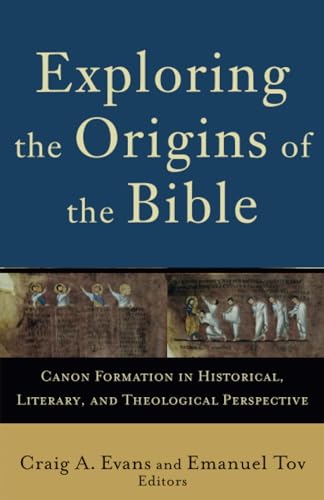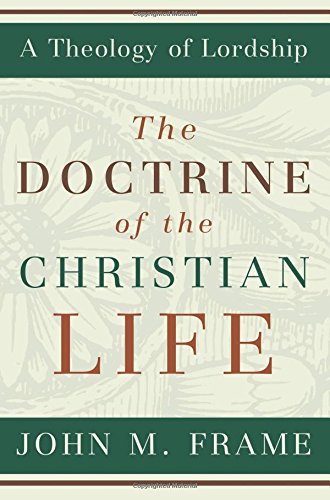Why Johnny Can’t Preach: The Media Have Shaped the Messengers
Written by T. David Gordon Reviewed By Rhett DodsonIt is not uncommon to decry the state of preaching today, but T. David Gordon, a former pastor, seminary professor, and currently professor of religion at Grove City College, has set out to do something about it. While not offering a full-scale prescription to solve the problem, Gordon’s analysis is a significant step toward correction. Playing off the popular titles Why Johnny Can’t Read and Why Johnny Can’t Write published in 1966 and 1990 respectively, Gordon analyzes the current plight of the pulpit.
The answer to Why Johnny Can’t Preach is that the media have so shaped our culture that men do not have the necessary analytical tools to preach well. Gordon begins by arguing that Johnny (his generic name for anyone) most certainly cannot preach. Much of his evidence is anecdotal, but to those who have listened to a lot of preaching, the argument bears weight. For further proof, Gordon lists Robert Lewis Dabney’s seven “cardinal requisites” of preaching and argues that most, if not all, are missing in the majority of sermons one hears today.
In the second chapter, Gordon argues that preaching has fallen on hard times because we have lost the ability to read texts. People can read, but most reading is done to acquire information, not to appreciate both what is written and the way it is written. Our culture has trained us to hurry in everything we do, but for readers, and especially preachers, the rush routine is deadly. Those who aspire to preach well must not only read but read at such a pace that they can ascertain the significance of the text. Gordon writes, “Our routines make us more efficient, as we attempt to scratch out some form of survival in this cursed environment, but those same routines can make us more like cogs in a machine and less like humans. Life becomes a series of tasks, with few uninterrupted moments to pause, to reflect, to appreciate” (p. 52).
The third chapter covers the second reason Gordon believes the church suffers from such poor preaching: Johnny can’t write. Coupled with the inability to read texts is the inability to express oneself via the written word. The use of e-mail, instant messaging, and cell phones have put us in constant contact with many people, but these media have left us with the inability to compose logical, concise, and unified compositions. Furthermore, these media have depersonalized our conversations. We have lost the ability to read people, their expressions (or lack of expressions), and hence we are unable to engage others for any lengthy period of time and maintain their interest.
Gordon offers his own thoughts about the content of preaching in the fourth chapter. To encourage Christ-centered preaching, the author identifies four common types of sermons and labels them as failures. Moralism, the first of these failures, “occurs whenever the fundamental message of a sermon is ‘be good; do good’ (or some specific thereof)” (p. 80). The “How-To” sermon “reduces life and religion to technique, and suggests (implicitly, never explicitly) that a sinner can change his ways if he just has the right method” (p. 82). The introspective sermon turns the listener in upon himself so that all he or she can see is personal failure. Finally, Gordon identifies today’s “So-Called Culture War” messages with the social gospel preaching of the early twentieth century. He believes “that cultural change is out of our hands” is “the basic subtext of everything the Bible teaches” (p. 86). To counter these failures, Gordon encourages the faithful preaching of Christ. Since Christ is the object of our faith, the more we hear of him, the more we will trust him and turn away from our sin and efforts of self-righteousness.
Is it possible to teach Johnny to preach? Gordon answers in the affirmative in his fifth chapter, but it will take work, counter-cultural work, that trains would-be preachers to “cultivate those pre-homiletical sensibilities that are necessary to preach well” (p. 96). These would include, of course, the cultivation of the close reading of texts (Gordon suggests that reading poetry is a good skill to acquire for this) and the ability to compose well-written material. Second, pastors should instigate an annual review of their preaching. No minister will know whether or not his preaching is effective unless he receives some feedback from the congregation. Third, preachers must both read and write. Only by doing this hard work will their public proclamation of God’s word improve.
While I appreciate and agree with the author’s emphasis on Christ-centered preaching, I find his application unbalanced. Gordon asks whether there is any place, for example, for preaching about morality. He grants that there is in the overall teaching ministry of the church but rarely in the pulpit. He sees moral teaching, probing analysis of the listener’s spiritual condition, and culture critique as “occasional secondary results of Christ-centered preaching.” But I wonder, is it not possible to preach a series of Christ-centered expositions of the Ten Commandments instead of confining the lessons to a Sunday School class? While Gordon is correct to write, “The pulpit is the place to declare the fitness of Christ’s person, and the adequacy of both his humiliated and exalted work for sinners” (p. 91), unskilled preachers will reduce this advice to sermons that are one-dimensional, and every sermon will end up sounding the same. Men need to be taught how to preach Christ from all of Scripture so that they can apply every facet of the Bible in a gospel-centered way. This will still be Christ-centered preaching, but it will possess the variety and vibrancy of the Bible itself.
Gordon is right: Johnny can’t preach. But hopefully he will read enough to discover this slim volume and profit from it.
Rhett Dodson
Grace Presbyterian Church (PCA)
Hudson, Ohio, USA
Other Articles in this Issue
We begin with a question of translation. Many translations place a period after the word “conviction” in 1 Thess 1:5: “in power and in the Holy Spirit and with full conviction...
The Inexhaustible Fountain of All Good Things: Union with Christ in Calvin on Ephesians
by Lee GatissJuly 10, 2009 was the 500th birthday of the acclaimed French Reformer John Calvin...
The name of Martin Luther is perpetually linked to the doctrine of justification by faith alone...
Of the many questions currently surrounding the discussion about justification, the relationship between justification and spiritual fruit merits attention...
Every year a few students ask me my thoughts about whether they should pursue doctoral studies and I respond with what has come to be known as ‘The Speech...







